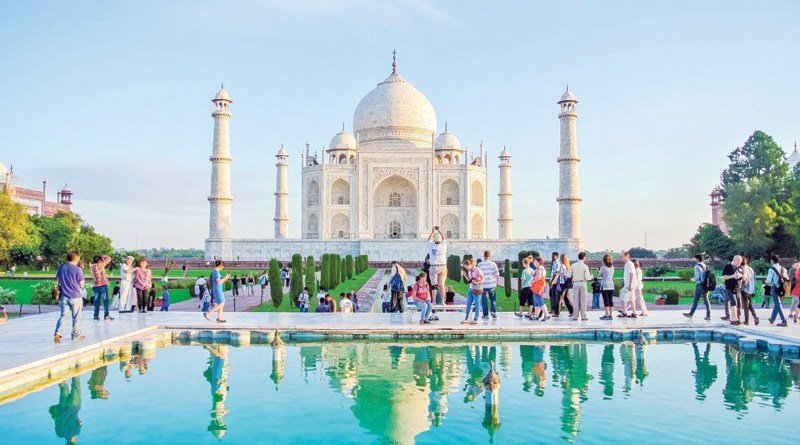AGRA: The tourism industry and conservationists have generally welcomed the new entry system with turnstile gates to regulate crowds at the Taj Mahal here which attracts more than seven million visitors annually. Seven turnstile gates have been installed at the entry points and visitors are allowed to stay for a maximum of three hours inside the iconic 17th-century monument of love, Archaeological Survey of India (ASI) officials told IANS.
Earlier, there was no time limit and tourists spent a whole day soaking the beauty of the marvel of white marble.
ASI chief Vasant Swarnkar said if visitors did not return in the allotted three hours, they would be charged extra at the exit gates. Tokens in four colours are being provided at the entry points.
Conservationists said this was a long overdue change, as it would help regulate mobility and restrict tourist numbers, thus reducing human overload pollution at the monument.
Surendra Sharma, president of the Braj Mandal Heritage Conservation Society, said: “With a staggering ticketing system already in place, this new time limit will allow the ageing monument some breathing respite and also help keep a record of actual entry to the monument. Some restrictions also need to be placed on the free entry of people, particularly from the government sector.”
Foreign tourists are charged Rs 1,100, with an extra Rs 200 for entry to the main mausoleum, while domestic tourists have to pay Rs 50, and Rs 200 for the mausoleum.
While most foreign tourists used to the turnstile gates, did not complain, several Indian visitors found the new system irksome. A few felt the move could discourage tourism.
“Three hours are certainly not enough to spend in the shadow of the majestic monument of love,” said Tara, a tourist from Mumbai.
But tourist guide Ved Gautam said three hours are more than sufficient. “Usually most tourists return in one-and-a-half hours.”
Also, the Taj Mahal will soon be the first monument to provide for a baby feeding room for the convenience of lakhs of mothers accompanied by children. IANS







